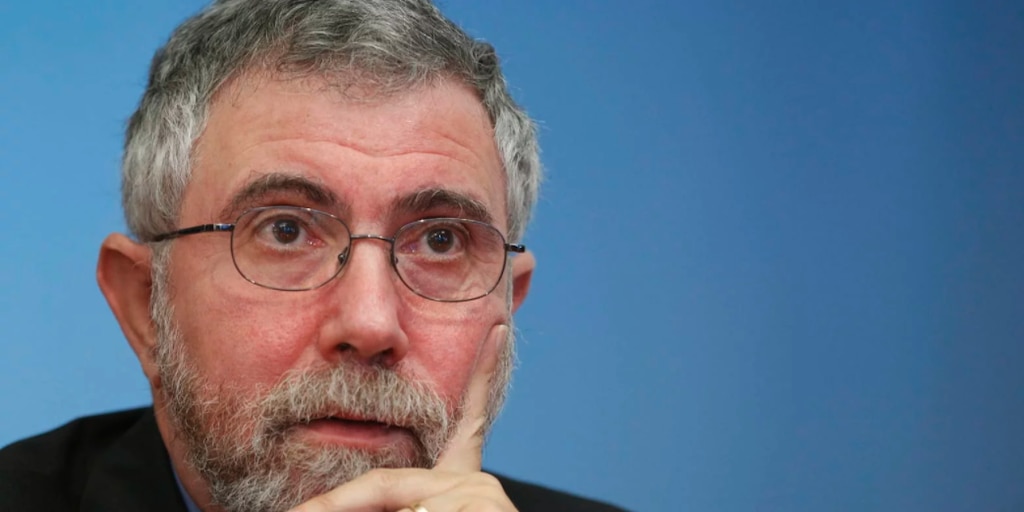 Brendan McDermid/Reuters
Brendan McDermid/Reuters
- Nobel Prize-winning economist Paul Krugman broke down the broad disconnect between stock markets and the real economy in a scathing New York Times op-ed last week.
- In the piece titled “Stocks Are Soaring. So Is Misery,” Krugman warned that investor optimism over Big Tech’s profits would not go far as people cannot survive on “rosy projections” about the future.
- Using Apple’s $2 trillion market valuation as an example, he pointed out that as long as investors expect the tech giant to generate profits in the coming years, they “barely care” about the prospects for the US economy in the near-term.
- Visit Business Insider’s homepage for more stories.
Nobel-winning economist Paul Krugman explained what is driving the large disconnect between rising stocks and “growing misery” in a New York Times op-ed on August 20.
“The real economy, as opposed to the financial markets, is still in terrible shape,” he wrote.
“The truth is that stock prices have never been closely tied to the state of the economy,” he said, adding that they are disconnected from indicators such as jobs and economic output.
Wall Street’s fixation on tech mega-cap tech stocks has pushed the weighting of the S&P 500’s 10 biggest components to record highs.
Those companies, including Apple, Facebook, Amazon, Microsoft, and Alphabet, have comprised roughly 29% of the S&P 500 as of July 31, The Wall Street Journal reported, citing data from S&P Dow Jones Indices.
That represents the largest share ever in data going back 40 years.
Apple holds the greatest weight in the index, taking up roughly 6.5%. Last week, the tech giant became the first US-listed company to hit a $2 trillion market capitalization.
Krugman pointed out that the market values of tech companies have little to do with their current profitability, or the state of the economy.
“Instead, they’re all about investor perceptions of the fairly distant future,” he said.
Apple’s price-to-earnings ratio stands at about 33, which suggests that only around 3% of the value investors place on the company reflects the money they expect it to generate over the course of the next year, Krugman said.
“The profits people expect Apple to make years from now loom especially large because, after all, where else are they going to put their money? Yields on US government bonds, for example, are well below the expected rate of inflation,” he wrote.
“As long as they expect Apple to be profitable years from now, they barely care what will happen to the US economy over the next few quarters.”
“Unfortunately, ordinary Americans get very little of their income from capital gains, and can’t live on rosy projections about their future prospects.”
He warned that ordinary citizens can only retrieve minimal income from capital gains and cannot survive on “rosy projections” about the future.













